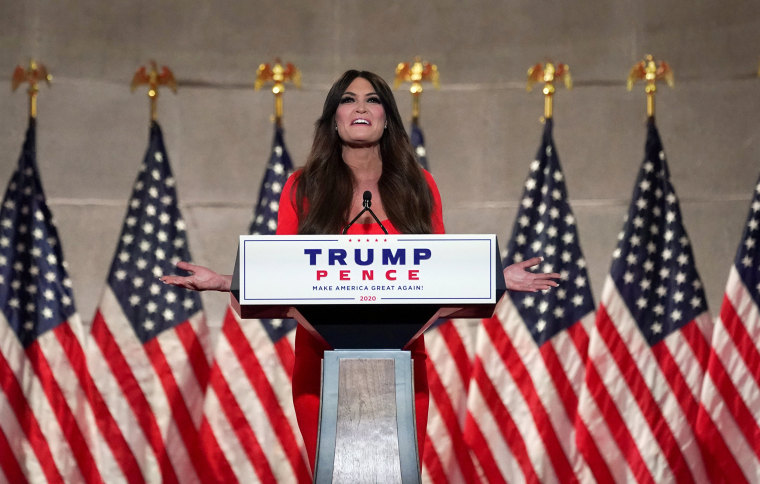Kimberly Guilfoyle is Contradicted By Puerto Rico on Her “First Generation American” Remarks, Puerto Ricans Are Not Immigrants Girl!
 |
| Republican and Trump Honoree, Very grateful to to get the VIVA Paper Towels, since is the only thing He is done for PR. She does not understand what Puerto Rican's are just like her bosss that was looking to exchange Puerto Rico for Norway not taking into account Puerto Ricans are Part of The United States not as immigrants but as citizens. United States took them from Spain after the Spanish American war. There is no thing as a Puerto Rican immigrant because ALL Puerto Ricans are born Citizens. Adam Gonzalez |
| The Capitol building in San juan. You have the House and Senate there and they go by the PR Constitution which mirrrors the US Constitution. The US Constitution Takes Presence. |
 |
| The gift after Maria shaved off the Island. Trump came with a few paaper towels to dry the streets. |
By Nicole Acevedo
Puerto Ricans are pushing back against misleading remarks by Kimberly Guilfoyle, the national chair of the Trump Victory Finance Committee, during her speech Monday night at the Republican National Convention.
Guilfoyle, a former California prosecutor who is Donald Trump Jr.'s girlfriend, showed her support for President Donald Trump's re-election as "a Latina and proud American," she said. Her mother is from Puerto Rico, and her father is from Ireland.
"As a first-generation American, I know how dangerous their socialist agenda is," said Guilfoyle, referring to Democratic opponent Joe Biden and his vice presidential pick, Kamala Harris. "My mother, Mercedes, was a special education teacher from Aguadilla, Puerto Rico. My father, also an immigrant, came to this nation in pursuit of the American dream. Now, I consider it my duty to fight to protect that dream."
Her remarks sparked a loud social media backlash as people reminded Guilfoyle that Puerto Ricans aren't immigrants because they are born U.S. citizens.
Puerto Rico has been a U.S. territory since 1898. Puerto Ricans were given citizenship in 1917 and were granted birthright U.S. citizenship through the National Act of the 1940s.
"After 1940, Congress declared that anyone born in Puerto Rico is born in the United States, so for her to claim that she is the daughter of immigrants is really tricky," said Charles Venator-Santiago, a political science professor at the University of Connecticut who is coordinator of the Puerto Rico Citizenship Archives Project.
Political scientist Carlos Vargas-Ramos, director of public policy at the Center for Puerto Rican Studies at Hunter College in New York, said: "Could her mom count as an immigrant, even though she is a born U.S. citizen? In that case, no." But when Puerto Ricans like Guilfoyle's mother move to the U.S. mainland, which is considered internal migration, "they don't migrate as someone who has come from Montana to North Dakota," Vargas-Ramos said. "There's a cultural transition in coming from Puerto Rico that is evidently Latin American in terms of culture and language.
"Crossing that cultural border makes their experience similar to that of an immigrant," said Vargas-Ramos, but it doesn't make Puerto Ricans immigrants.
What makes Puerto Rico more complicated is its territorial status compared to the states. "Puerto Rico is part of the United States for international purposes but foreign for domestic or constitutional purposes," said Venator-Santiago, citing a series of Supreme Court cases from the 1900s known as the Insular Cases.
Against this background, Guilfoyle's "claim that she is an immigrant is nonsensical in international laws because what the Insular Cases say," Venator-Santiago said.
While Puerto Ricans are citizens, they don't vote for president, and they have no voting representation in Congress. They also pay more for foreign goods because of shipping laws that benefit mainland workers, for example. "So for the rest of the world, Puerto Rico is part of the United States, but within the United States, Congress invented this idea that Puerto Rico could be separate," Venator-Santiago said.
For Vargas-Ramos, "quibbling over the terminology that she uses obscures the fact of what she was really trying to say."
"What she was trying to say is that her family is a family of Latin American immigrants, when, in fact, her boyfriend's father has targeted Latin American immigrants, specifically Mexicans, as the worst kind of immigrant in this country," Vargas-Ramos said.
"From my estimation, what she was trying to do and what the campaign was trying to project is that here is this half-Hispanic woman who has been allowed into the president's family, even if it's marginally through her companionship, to kind of demonstrate that the president isn't a racist or a xenophobe," he said.
Comments